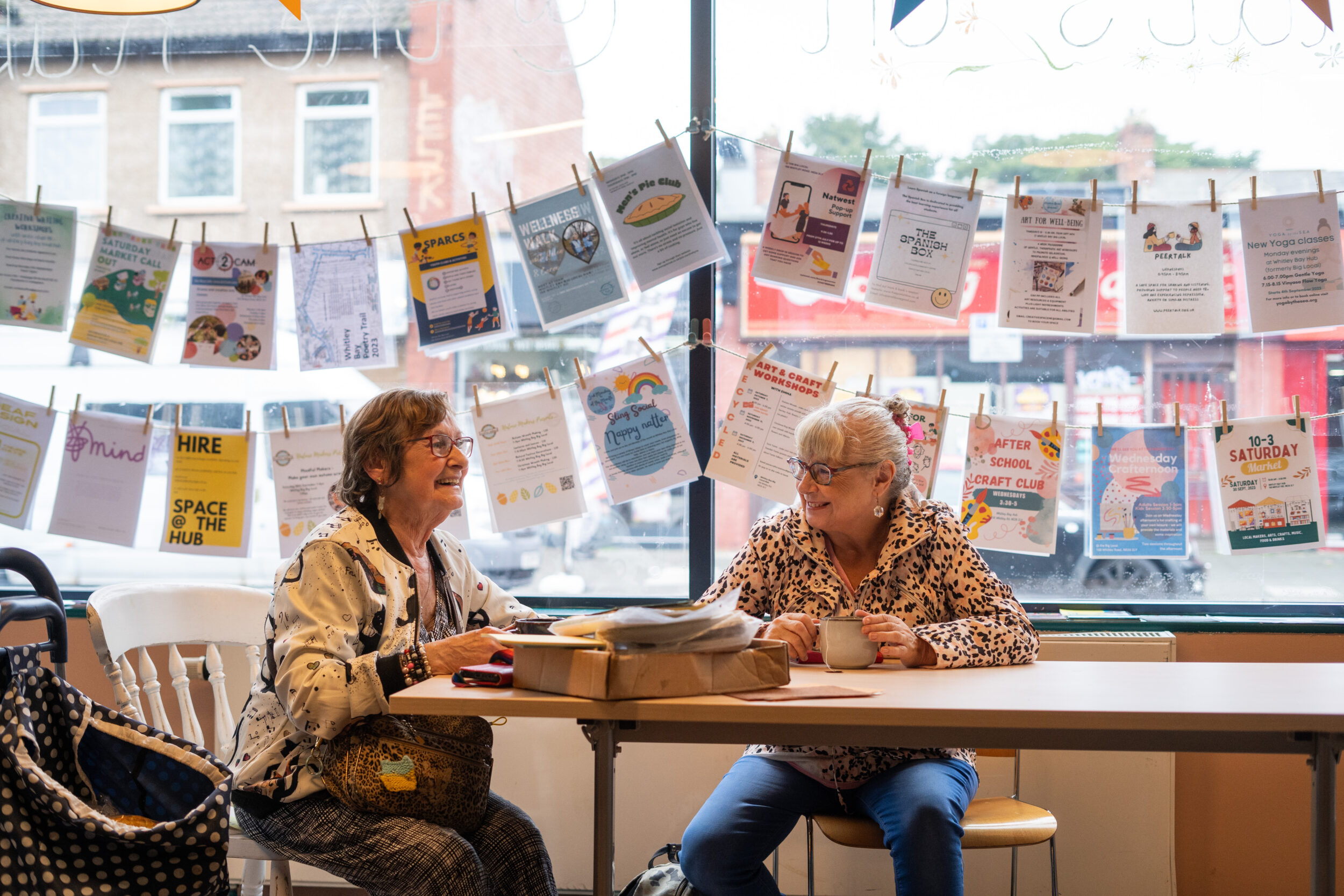
A CEO’s perspective maximising space with the help of a loan
By purchasing its community centre, Whitley Bay Big Local has been able to save around £2,000 a month, attract grant funding and start an ambitious refurbishment project. CEO David Carnaffan tells us more…
Can you tell us about the community centre that you bought with the help of your Charity Bank loan?
Before Whitley Bay Big Local, the area didn’t have a community hub for people of all faiths and none. We started with a small shop, then we moved to a larger building with other tenants. We moved to our current home in 2019, with the intention of buying the property, which we were finally able to do in November 2021.
The building was a Job Centre for 25 years. It’s got random little offices, suspended ceilings and strip lightning. It needs a heck of a lot of work to make it a fit-for-purpose community space.
What made you decide to buy rather than carry on renting?
We wanted a place that was our own, where we could make any changes that we wanted to. We also couldn’t afford to keep renting. We were on a rent-to-buy agreement, but in June 2022 the rent would have gone up considerably.
Whitley Bay Big Local is part of the national Big Local programme, which is coming to an end. We need to make sure our business model is sustainable. We just wouldn’t have had enough income to afford the rent as well as utilities and staff costs. Aside from the cost, we have ambitious plans to retrofit the building as a community eco-hub. Without owning the building we would have found it difficult to make changes and any changes would have added value to someone else’s property.
Why did you choose Charity Bank for your loan?
We also spoke to other lenders that are geared up for the charity sector, and several commercial lenders. There seemed to be a lot of hurdles to overcome for the other charity lenders. And commercial lenders just shut us off at the pass. They considered us too high risk.
The conversations with Charity Bank were immediately very positive. I had a really encouraging initial phone call with Jeremy Ince. I’d started conversations with other lenders that didn’t go very far, so it was a huge relief to talk to someone who thought a loan was doable. What we were asking seemed to be right up Charity Bank’s street.
As we progressed through the application, we were passed onto Bernie Teggart, who was very patient and managed to translate what was quite technical, sometimes boring legislative information down to the level that I could understand quite easily. I then acted as a conduit to the Board and fed that information back to them. So throughout the whole process from start to finish, everyone was really helpful and encouraging.
It was a very positive experience, and everything seemed possible with Charity Bank.
How do your loan repayments compare to the rent?
Our loan repayments are around £2,000 a month lower than the rent would have been. Plus, we’re starting to make inroads into paying off the capital, so owning the building is considerably better for our balance sheet.
Do you think owning property will help in other ways, such as applying for grants?
Capital grants require you to have proof of ownership or a secure, long-term lease. We’ve always had short-term leases, so funding bodies couldn’t offer us capital grants. It also wouldn’t have made sense for us to apply for a capital grant to renovate someone else’s property. So, owning the community centre opens up new funding opportunities.
Could you have bought the property without a loan?
In the end, we could have bought the property without a loan, thanks to a grant from Community Ownership Fund, but it still meant that we needed funds to do any work on it. Without the loan we would have ended up with a building, but it wouldn’t have been a sustainable asset; it would have been a liability.
Without the full refurbishment, the building would never be able to cover its costs. So, we need to take advantage of all those avenues and opportunities that are open to us, from crowdfunding to grants, trusts and foundations, in order to make this a sustainable space. And one of those avenues is loan finance.
Once all the work has been completed, will you be able to earn enough from the building to pay for the loan and operational costs?
Yes, the income that the building will generate should cover most of our core staff costs, the loan repayments and the cost of running and maintaining the building. The refurbishment will double the usable space that we have now, so we should end up with at least twice the number of visitors.
We should be able to get grants to cover some of the rest of our costs, and we’re aiming to create a cycle hub to generate more income. The council is planning to create a new sustainable transport route, which will pass close by, so people will be able to come into the centre, get their bike serviced, pick up spare parts, and enjoy a coffee and cake.
How did you find the loan process itself?
it was very similar to a funding application, particularly in the early stages, so it was quite straightforward really; there weren’t any big surprises. When we got to the technical side of exchanging documents and taking part in all the searches and things like that, it did become a bit more challenging. Thankfully, we’ve got a property lawyer on the Board, so I could pass things onto her. But if you don’t have that expertise, it’s still doable as Charity Bank goes to great lengths to help you understand what it is that you’re looking at.
Looking back, is there anything you wish you’d done differently?
We started by trying to find the lenders with the best rates and just ended up hitting brick walls. So, we could have saved ourselves a lot of time and effort just by going straight to Charity Bank in the first place.
Charity Bank was set up to support charities and social enterprises. If you need a loan for your organisation, please call us on 01732 441919.
About Charity Bank
Charity Bank is the loans and savings bank owned by and committed to supporting the social sector. Since 2002, we have used our savers’ money to make more than 1400 loans totalling over £605m to housing, education, social care, community and other social purpose organisations.
Nothing in this article constitutes an invitation to engage in investment activity nor is it advice or a recommendation and professional advice should be taken before any course of action is pursued.


